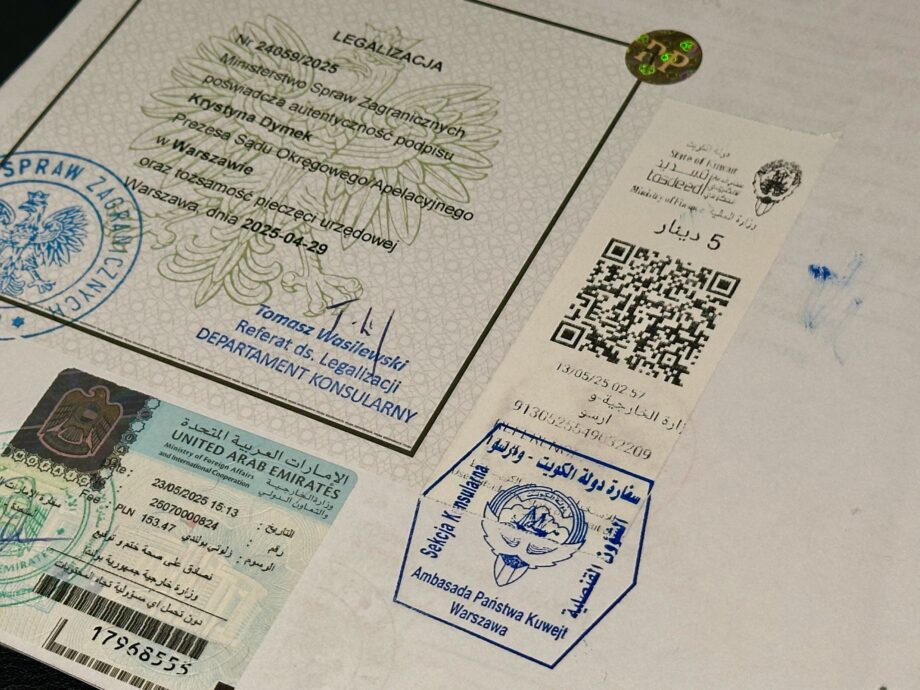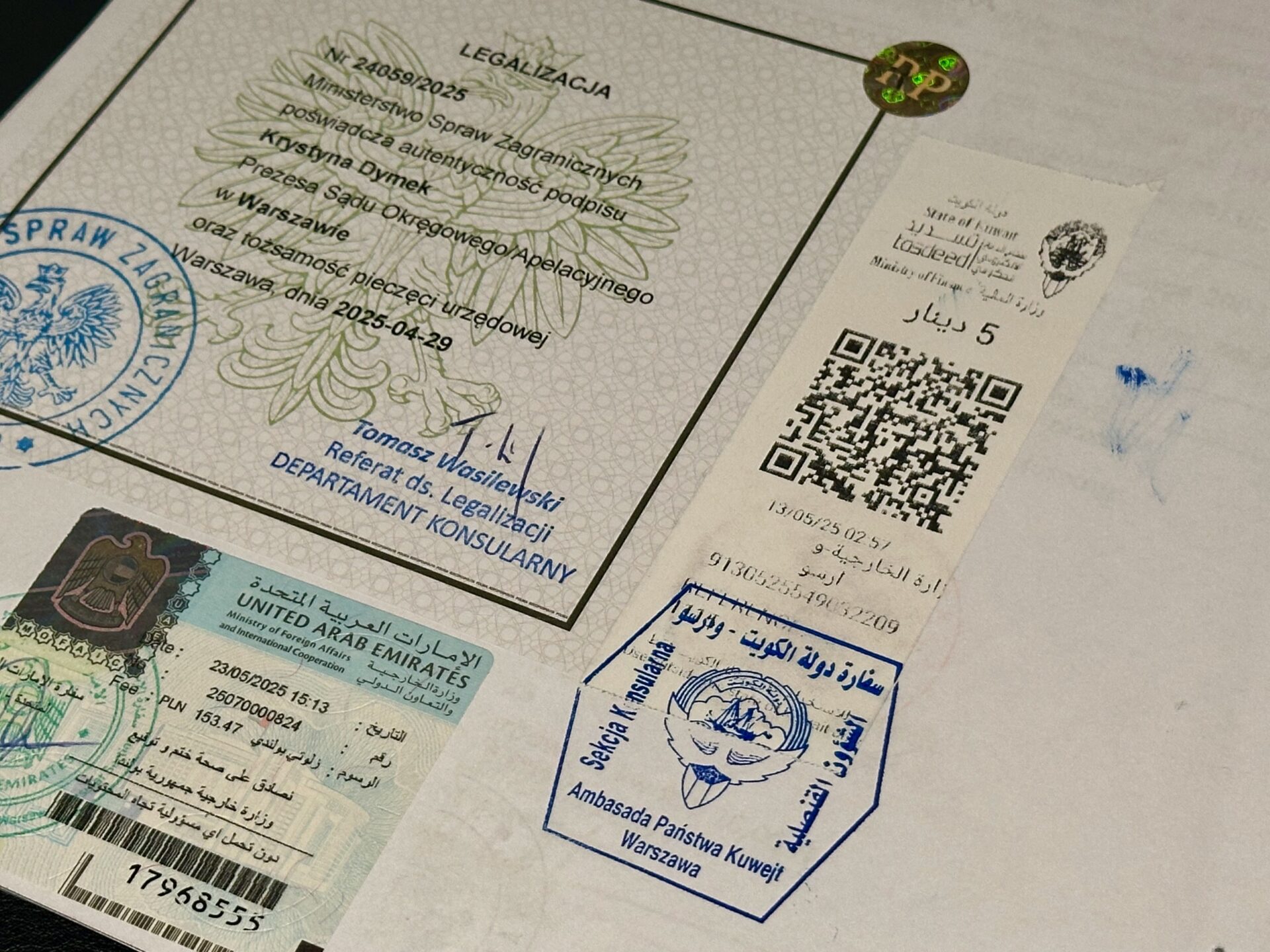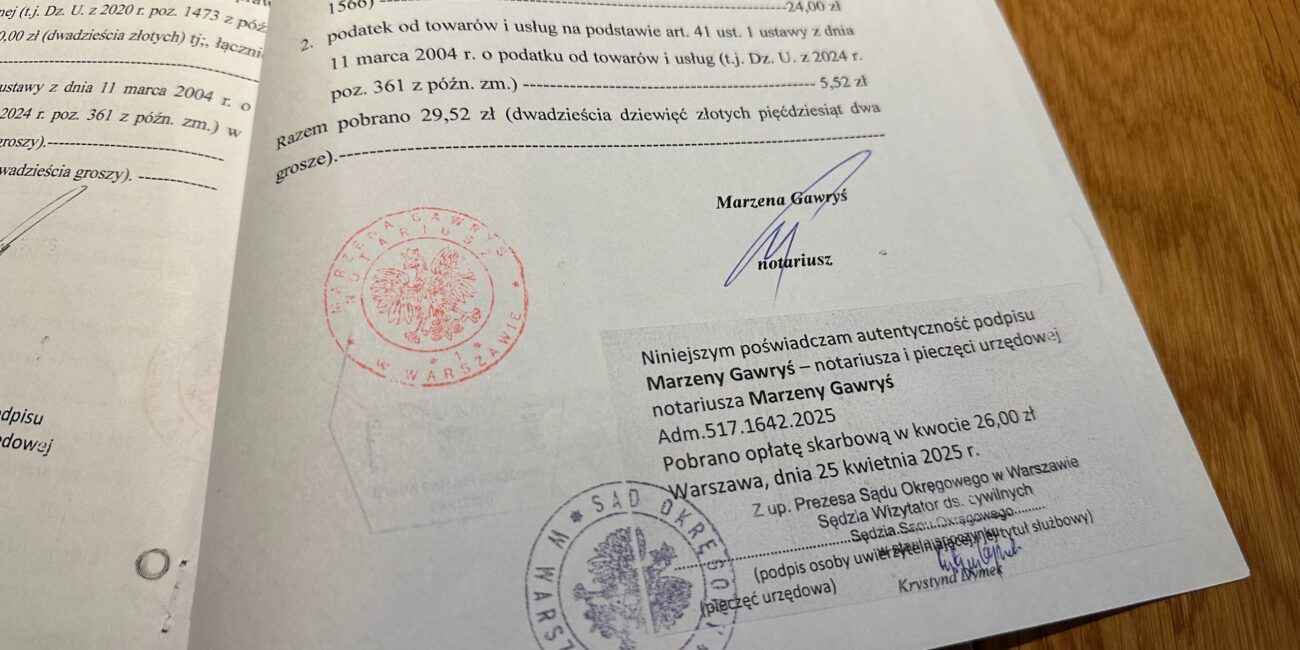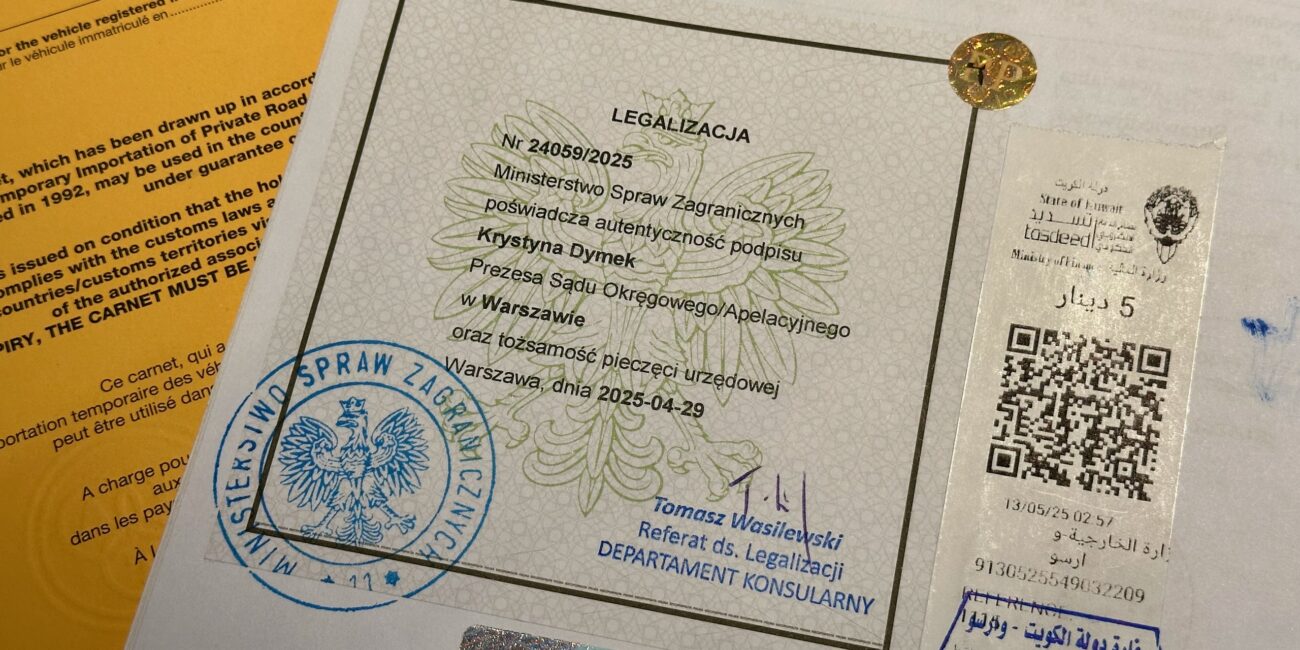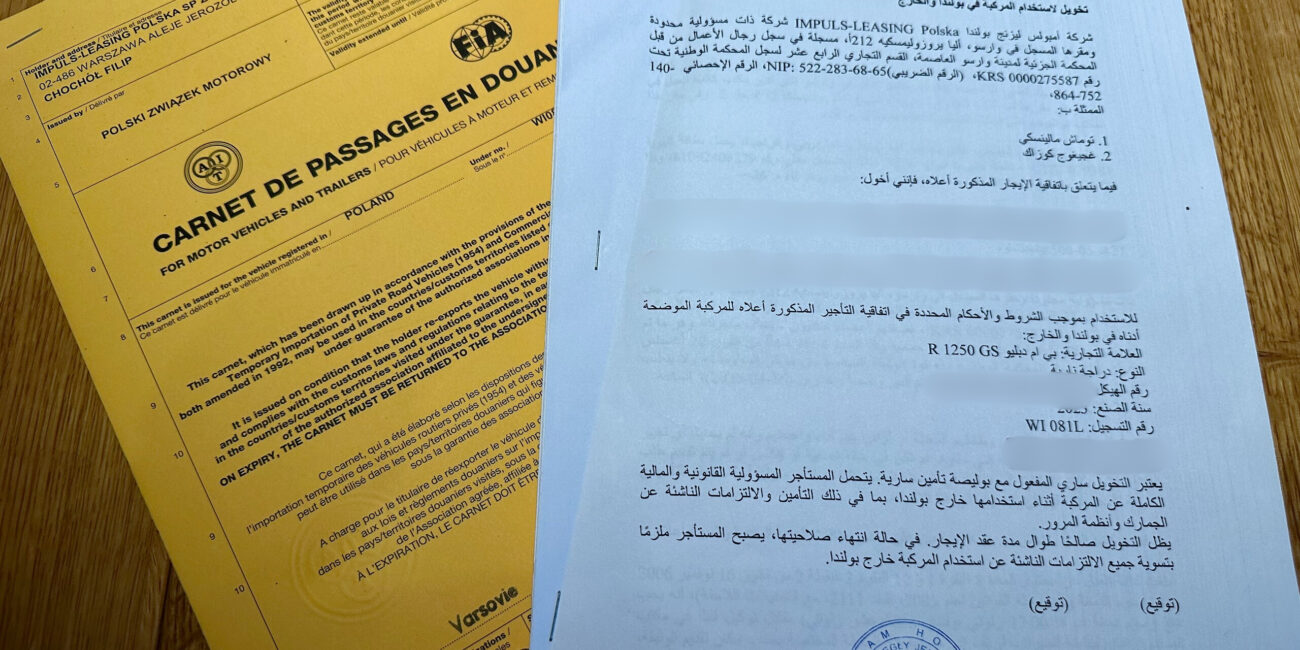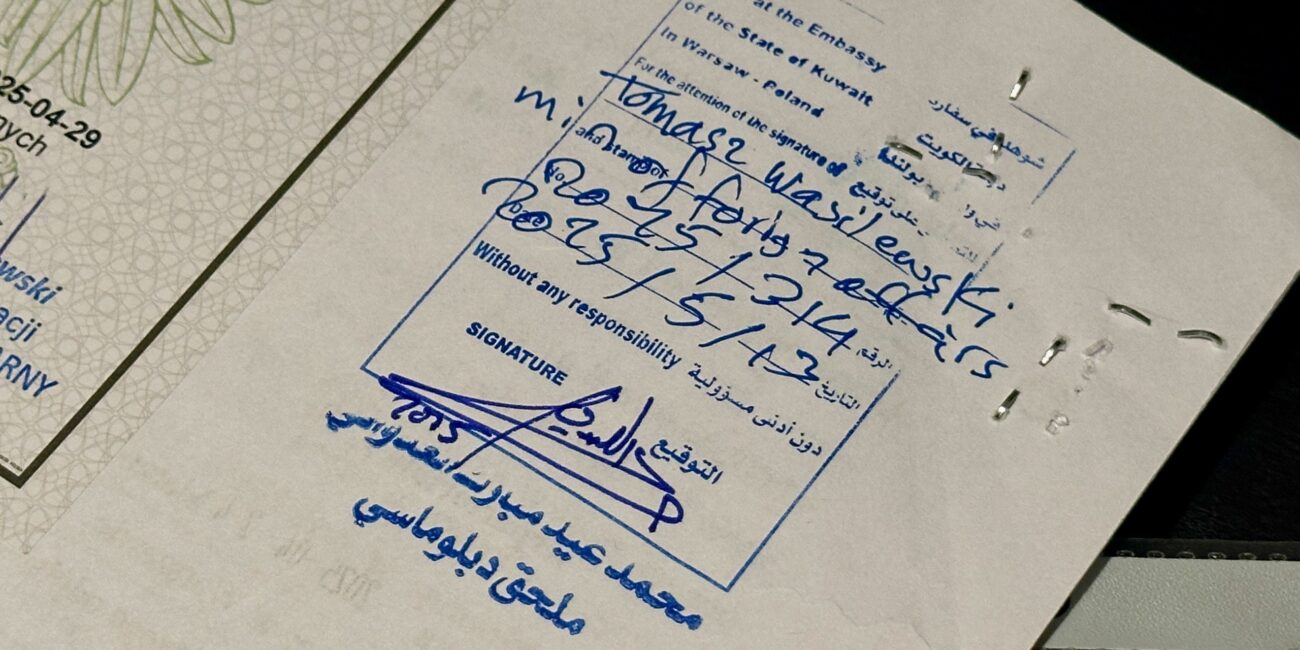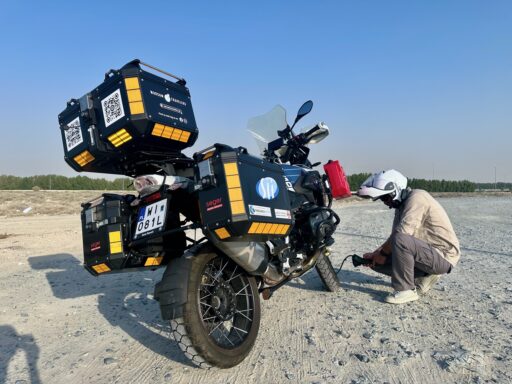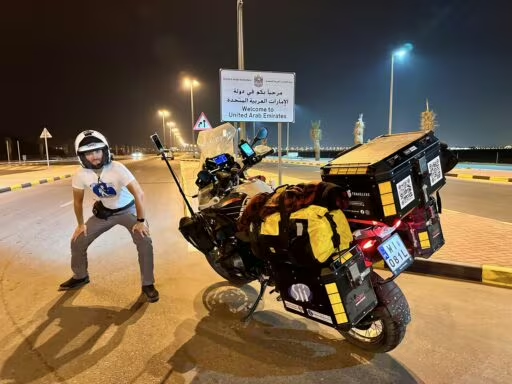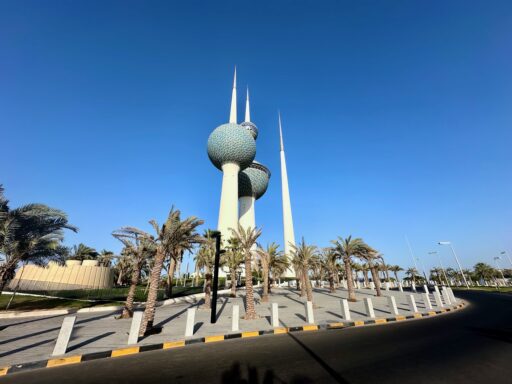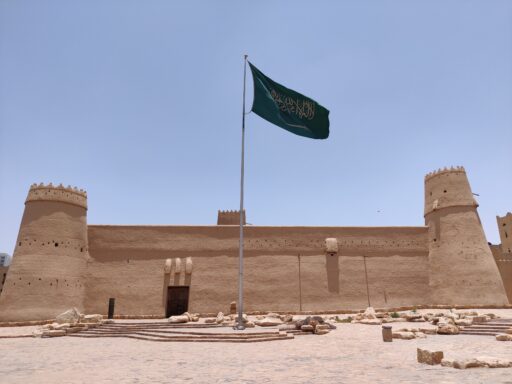This post is also available in:
Polski
Hello! 👋
The next stop on our September motorcycle route to Oman – this time, Kuwait. Regular readers will remember we’ve already covered the paperwork for Turkey and Iraq – if you haven’t checked those posts yet, it’s worth a look. You’ll find plenty of practical tips there that may also come in handy when dealing with Kuwait’s requirements.
This time, the procedure was a bit simpler, as we already had most of the documents prepared, but they still needed additional legalization. In this article, we’ll share how it looked in our case and what to watch out for if you’re handling it yourself – especially if you’re traveling with a leased vehicle
Why do we need additional documents in Kuwait?
Kuwait – just like Turkey or Iraq – lies outside the European Union, so our ‘regular’ PDF authorization from the leasing company simply isn’t enough. This small Gulf state has its own procedures and – as befits a wealthy oil country – everything must be formally in order. It’s not that border officers nitpick for no reason; it’s simply that, on paper, a leased motorcycle isn’t actually ours. And for Kuwaiti officials, the only thing that matters is what’s written in the documents.
Are Kuwaiti border officials very strict? According to other travelers’ stories, it varies – some crossed the border with the bare minimum of paperwork and weren’t asked a single question, while others went through lengthy checks. We prefer to follow the rule: better to have it and not need it, than to need it and not have it. That’s why, before setting off, we contacted the Embassy of the State of Kuwait in Warsaw to make sure our documents met their requirements.
What documents do we need at the border?
Below is a list of the essential paperwork you’ll really want to have when entering Kuwait on a leased motorcycle (plus a few of our own tips).
- registration certificate,
- Passport + visa to Kuwait – you apply for an e-visa via the official website of the Kuwaiti Ministry of Foreign Affairs.
- notarial authorization from the leasing company, translated into Arabic by a sworn translator and legalized by our Ministry of Foreign Affairs as well as the Embassy of the State of Kuwait in Warsaw,
- Carnet de Passages – Kuwait officially requires it; this is confirmed by the Kuwait International Automobile Club and the FIA system.
- a copy of the lease agreement – just in case; if necessary, it can be quickly translated using DeepL or ChatGPT,
- Photocopies of all documents – keep them separate from the originals; in the event of theft, they will save your skin.
Notarial authorization – step by step
A motorcycle under a leasing agreement formally belongs to the leasing company, so without their written consent, you won’t be going anywhere. If your contract doesn’t include a clause restricting travel outside the EU, that’s a good sign — the leasing company has no legal grounds to refuse. In practice, though, it all depends on the company’s approach. Some will issue the document within a few days, while others may be more cautious, since Kuwait is outside Europe and requires travel through countries that Poland’s Ministry of Foreign Affairs lists as high-risk. The leasing company might be thinking: what if the vehicle gets detained, stolen, or damaged, and you’re unable to continue paying the installments?
The most important thing is a clear, unambiguous statement that you are allowed to use the vehicle outside of Poland — ideally without territorial restrictions, or with specific mention of the Middle Eastern countries. The document must be signed by a person authorized to represent the company (a board member or proxy) in the presence of a notary. The notarial fee is PLN 24.60 gross per signature. It’s worth requesting several copies right away — keep the original in a safe place, and use the others for the next stages of legalization.
The notary’s signature must be certified at the District Court — this is a mandatory step before visiting the Polish Ministry of Foreign Affairs (MFA). Without it, the MFA will not accept the document for further legalization, which is required because Kuwait does not recognize apostille and expects the full consular legalization process.
MFA – legalization and apostille on one copy
After having the notary’s signature certified at the District Court, the next stop is the Ministry of Foreign Affairs – Legalization Office at 38/42 Krucza Street in Warsaw. This is where your document receives its final Polish stamps before being sent to the translator.
It is worth knowing that there are two types of document authentication at the Ministry of Foreign Affairs:
- legalization – for countries outside the apostille system (e.g. Kuwait, UAE, Iraq),
- apostille – for countries that have signed the Hague Convention (e.g. Oman, Saudi Arabia).
In the case of Kuwait, in theory, legalization alone would be enough, since the country – much like Iraq – does not recognize apostille. However, if you plan to use the same document in other countries in the region, it’s best to obtain both authentications on a single copy right away. This way, the sworn translation will be based on the final version of the document – complete with all stickers and seals – exactly as it will later be presented to the embassies.
The procedure is straightforward: book an appointment online, pay PLN 26 for legalization and PLN 60 for the apostille. If you show up in person, you’ll get everything on the spot; if you send it by courier, allow a few extra days for processing (and it’s worth insuring the shipment).
This concludes the Polish part of the formalities – now the document can be sent to a sworn translator of Arabic.
Sworn translation
Once the document has all the required Polish stamps from the MFA (legalization and – if you opted for it – the apostille), the next step is to hand it over to a sworn Arabic translator.
According to information from the Embassy of Kuwait, they can also legalize documents in English – provided they are either signed by the leasing company or translated by a sworn translator. A self-made translation in Google Translate or any other app won’t suffice – the document must have full legal validity.
In our case, we chose to go with an Arabic translation. Why? Because on this trip, we’ll also be entering other Middle Eastern countries that require documents to be translated into their language. This way, we have one complete document that we can use across several embassies.
We once again used the services of Dr. Adam Hosin. The cost of such a translation usually ranges from 300 to 600 PLN net, depending on the number of characters. A big advantage was that everything could be handled on the spot – the translator immediately bound the translation with the original (including the Polish stamps) and sealed the entire set with his official stamp.
This is crucial, as the consulates of Kuwait, Iraq, or the UAE will not accept a translation presented separately. It must be permanently bound together with the original document into a single package.
Legalization of translations at the MFA and the Embassy of Kuwait
When the certified translation is ready, you would theoretically need to repeat the entire legalization process – as, in the eyes of the authorities, it is considered a new and separate document. In practice, however, when it comes to Kuwait, there are two possible scenarios.
If the translation is into Arabic, the MFA affixes the legalization stamp (and apostille, if applicable), after which the document goes to the embassy. However, if you use an English version (prepared by a sworn translator or issued by the leasing company), in many cases the embassy can legalize the original document in that language – provided it already bears the Polish court and MFA stamps.
In our case, things turned out a bit unusual: the sworn translation had so little free space for stamps that the embassy suggested legalizing the original in Polish and English (already stamped by the court and the MFA) and leaving the translation untouched. This way, we kept “room” for additional embassy stamps in the document’s “passport.”
The Consular Section of the Embassy of Kuwait is located in Warsaw and operates Monday to Friday from 9:00 a.m. to 1:00 p.m. No appointment is required—just inform the security at the entrance about the purpose of your visit. The fee is 125 PLN, and the document can be collected after approximately two business days.
We were pleasantly surprised by how friendly the staff were—they quickly realized we knew exactly what we needed and had our documents prepared “by the book”. By the time we came to collect the document, the whole embassy already knew about our motorcycle trip, which made the rest of the conversation much more relaxed. 🤣
Could it have been simpler, and how not to go crazy?
The entire procedure for Kuwait is perfectly manageable, but it does require good organization. In the best-case scenario—if the sworn translator works quickly and the MFA and embassy have no queues—you can wrap everything up in about two weeks. In summer or when offices are busier, it’s safer to allow for a month.
It’s worth remembering that the Kuwaiti embassy does not certify the content of your document—its legalization only confirms that the previous stamps (from the notary, court, MFA, and sworn translator) were issued by authorized officials. This means that, in theory, a border officer could still ask to see additional papers. In practice, however, if your document set is well-prepared, the risk of any issues is minimal.
We chose the “maximum preparation” route – we’d rather spend a bit more time finalizing paperwork in Poland than lose our nerves at the border. And that’s exactly what we recommend to anyone planning to cross Kuwait with a leased motorcycle.
If you don’t have the time to run around offices yourself, feel free to reach out to us through the contact form on our blog. We can guide you step-by-step on how to handle the process – or take care of it for you entirely.
See you on the road! 🗺️ 🏍️

